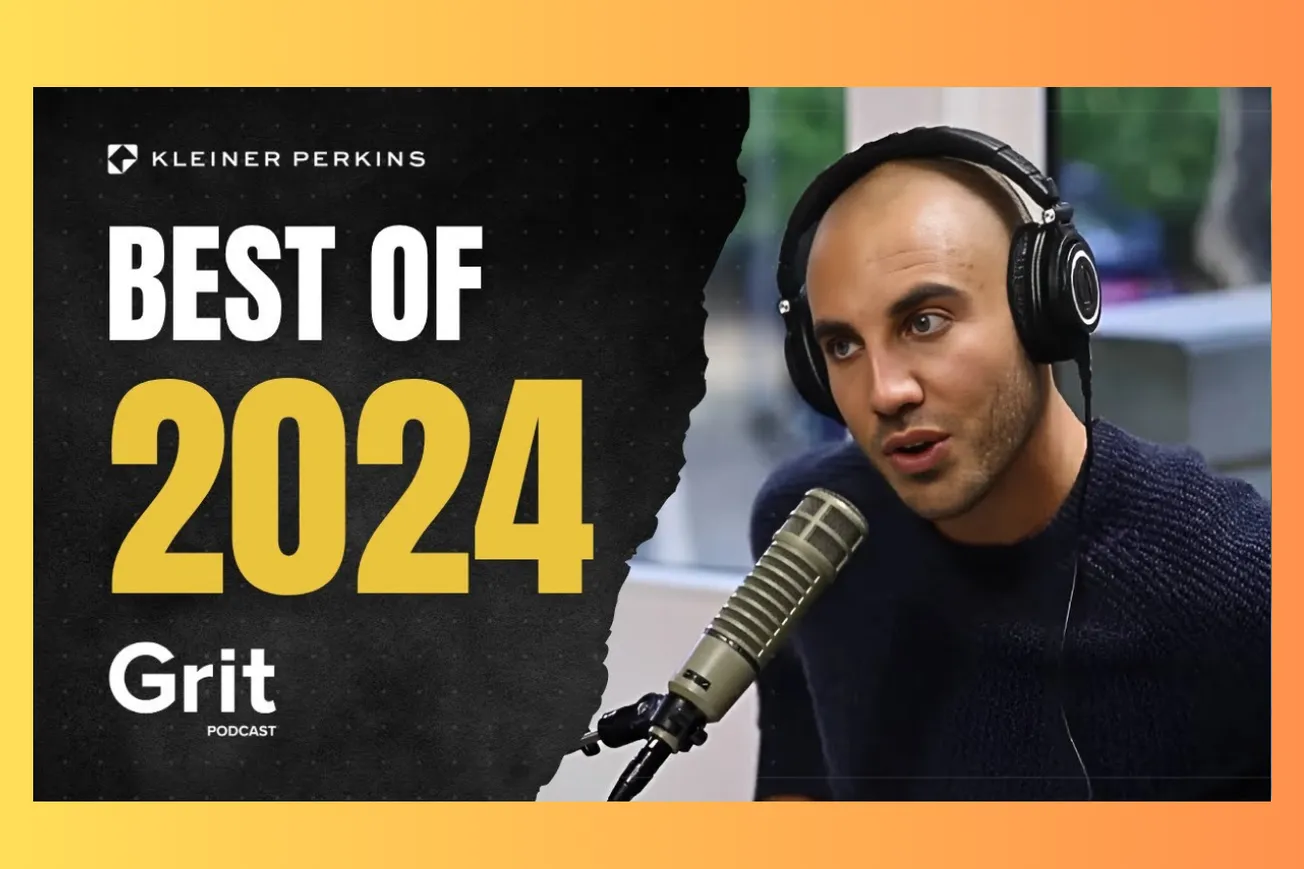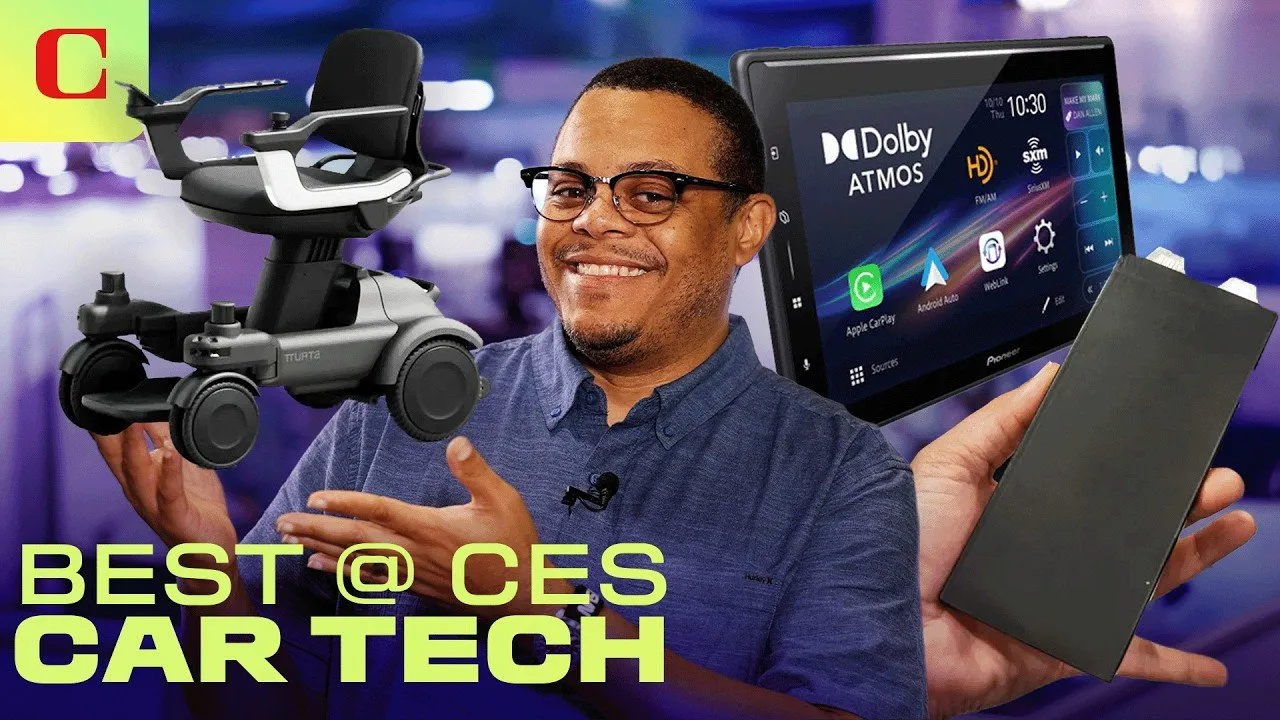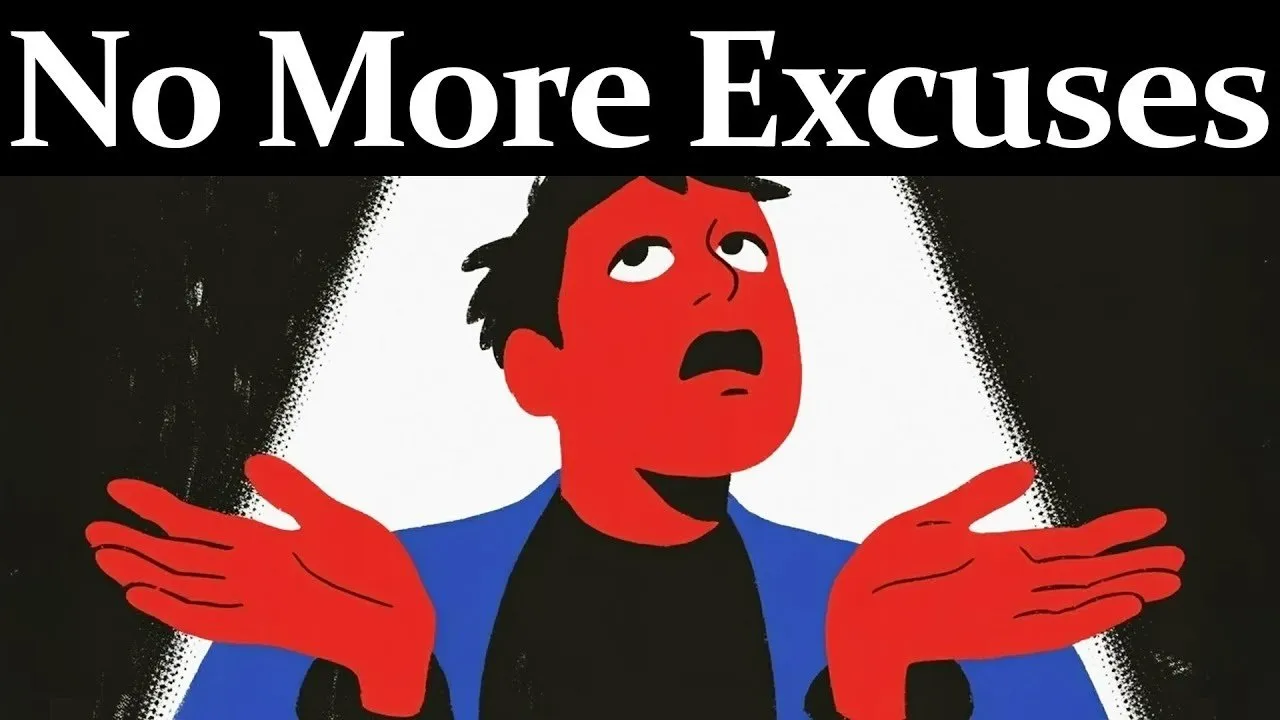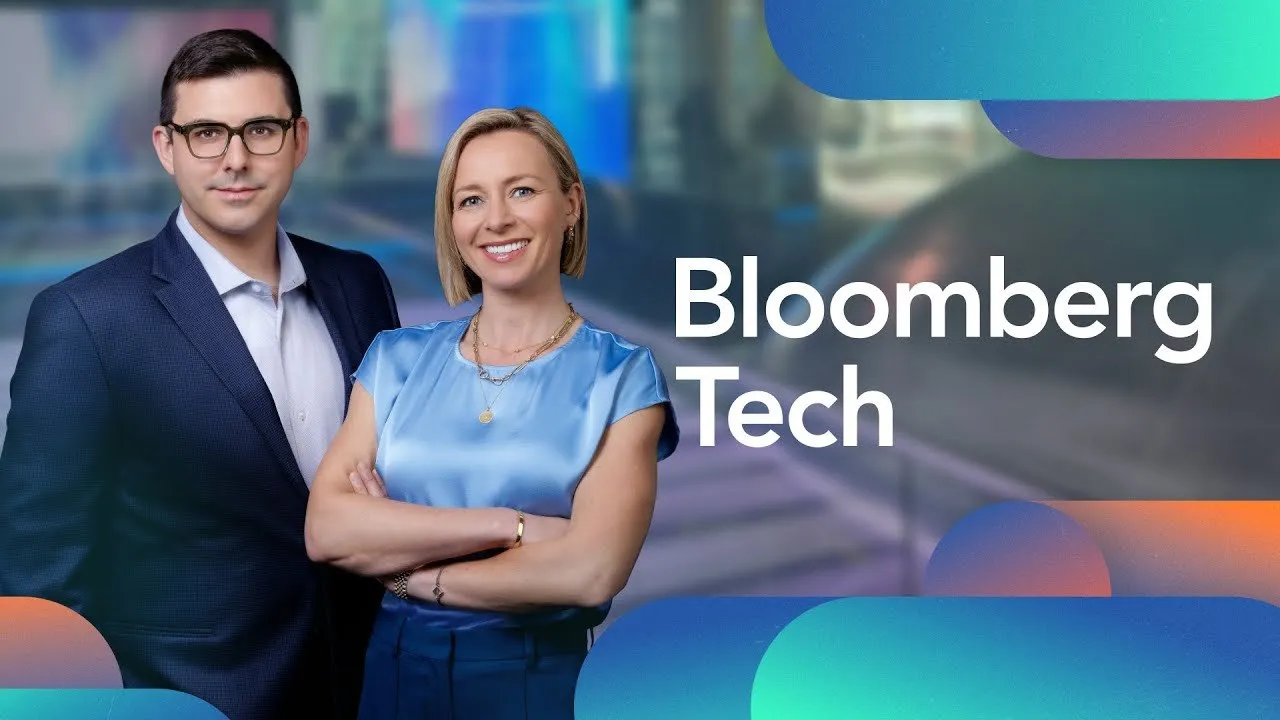Table of Contents
The most successful CEOs aren't just strategic—they're willing to confront uncomfortable truths about building companies, managing ego, and making impossible decisions under pressure.
Key Takeaways
- Jeff Bezos created a permanent Easter egg on Amazon's website honoring early executive David Risher, demonstrating how great leaders celebrate contributions
- Successful CEOs often cycle between fame and anonymity without losing their core mission focus or personal values
- Stepping away from CEO roles can provide crucial perspective that makes leaders more effective when they return
- Confronting powerful figures like presidential candidates requires conviction in your company's facts and values
- Building hardware companies during global crises demands extraordinary resilience and acceptance of uncontrollable circumstances
- Work addiction affects even the most successful executives, requiring intentional detox periods and identity recalibration
- Company culture begins the moment there's a closed door—when not everyone can fit around the same table
- Personal sacrifice is inevitable for world-changing CEOs, but self-awareness about motivations prevents destructive rationalization
Timeline Overview
- 00:49–07:38 — Jeff Bezos's Final Words to David Risher: How Amazon's founder created a permanent Easter egg honoring a departing executive's contributions, revealing the thoughtful leadership behind one of the world's largest companies
- 07:38–16:51 — Jason Kilar's 3 AM Streaming Gamble: Warner Media CEO's insights on cycling between high-profile roles and startup anonymity while maintaining Pittsburgh values and separating identity from outcomes
- 16:51–25:24 — Why Eoghan McCabe Left Intercom at Its Peak: Co-founder's journey through burnout, temporary blindness, stepping away from his company, and the difficult decision to return as CEO
- 25:24–32:43 — Mark Fields on Betting Ford's Legacy on EVs: Former Ford CEO's confrontation with Donald Trump over manufacturing decisions and the toughness required to defend corporate strategy publicly
- 32:43–45:27 — John Hanke's Post-Pokémon GO Revelations: Niantic founder's evolution from desperate startup builder to balanced leader, including selling Keyhole to Google and recruiting for meaningful impact
- 45:27–52:57 — Rony Abovitz's Magic Leap Reset: How a $3 billion spatial computing vision was devastated by COVID-19 and why choosing gratitude over bitterness enabled recovery
- 52:57–64:08 — McLaughlin's Reality Check at Qualcomm: Board chairman's analysis of executive work addiction, the psychology of stepping down, and why most leaders fail during transition periods
- 64:08–END — Taylor Francis Turning Climate Tech into a Unicorn: Watershed co-founder's approach to intentional culture creation while scaling from 50 to 300 employees in two years
The Amazon Executive Who Got a Permanent Easter Egg
David Risher's departure from Amazon in 2002 revealed Jeff Bezos at his most thoughtful. After six years helping build the company from unknown bookstore to e-commerce giant, Risher chose academia over continued ascension.
"David, that's nuts like that makes no sense... if I got hit by a bus, you would be running this company," Bezos told him. But Risher had decided to pursue a childhood dream of teaching.
The farewell gesture came after a mysterious phone call where Bezos asked about Risher's favorite books, movies, and songs. At the final all-hands meeting, Bezos revealed his surprise: a hidden Easter egg page on Amazon's website celebrating Risher's contributions.
"This Easter egg will live in perpetuity on the Amazon website," Bezos promised—and kept his word. The page still exists, degraded but persistent, with links to Risher's favorite products because "every page has to be selling."
Risher's transition philosophy came from his mother's advice: "If you spend energy thinking about what you're leaving behind, you will never do anything. You have to think about what's next." His University of Washington course "Competing on the Internet" earned him professor of the quarter and year awards, validating his intuition about personal fulfillment over obvious career advancement.
From Warner Bros CEO to Startup Anonymity: The Ego Test
Jason Kilar's career arc—from Hulu co-founder to failed Vessel CEO to Warner Media chief—tests a fundamental question: can leaders maintain their core identity through dramatic status changes?
"There's about five people that sort of run those kinds of companies... Warner Bros, Sony, Disney, NBC Universal, Paramount. That's the list," Kilar explains about media's inner circle. The role came with security details, black cars, and walkie-talkie coordination—maximum ego validation.
Yet his Pittsburgh upbringing in a family of eight created immunity to status addiction. "You better not get big in your britches, you better not allow your ego to be taking center stage."
When Vessel failed to achieve its YouTube-scale ambitions, the outcome was "crushing" despite Verizon's acquisition. But Kilar separates personal identity from business results: "I don't think that it defines them... those two things in my mind are two separate things."
His perspective on mortality provides crucial context: "Death is one of the greatest teachers on the planet... your time on this planet is going to be far shorter than what you would like, so just recognize that and make sure that you spend your precious time on the things that matter."
The CEO Who Ran Away and Had to Come Back
Eoghan McCabe's brutal honesty about stepping away from Intercom reveals the physical and psychological toll of startup leadership. "I literally could not see some days. I was like on calls and my eyes were open and I saw a blur... I'm like, okay, well I'm dying."
The planned exit strategy—sell the company while someone else handled the acquisition—fell apart when both acquisition talks and IPO plans collapsed during COVID market volatility. "I had pulled a move of epic proportions where I stepped away and someone else would have to be the CEO post-acquisition. I was like, wow, you nailed this. And then that didn't happen."
Friends split into two camps about his return: those who cared about his wellbeing said don't do it, while others encouraged the "ultimate ego trip of going back to your company and ripping things up and fixing it."
The stepping-away period provided irreplaceable perspective: "You learn a lot from building and failing and winning and failing, but the lessons don't quite get crystallized till you step away... you need to not be at the grindstone to put together your principles."
McCabe's return required accepting the "fucking lifestyle where you've got eight meetings a day" and becoming a "less good friend" due to time constraints. His insight about healing trauma: "You can't really move on from your insecurities or heal from your trauma in a vacuum. You have to be in the arena."
Taking on a Presidential Candidate: When CEOs Must Fight
Mark Fields' confrontation with Donald Trump during the 2016 campaign illustrates how auto industry CEOs face unique scrutiny. "Everybody has an opinion on the auto industry because we all, most people, drive cars."
When Trump criticized Ford's manufacturing announcements, Fields initially wrote a correction note. Trump faxed back a handwritten response: "Mark, I'm a big fan of Ford. Donald Trump." But the conflict reignited when Ford announced moving engine production from China to Mexico.
"I got so fucking pissed, I told my communications people, I don't care, get me on CNN, get me on CNBC," Fields recalls. His media tour used the phrase "facts are stubborn things" to counter misinformation about job losses.
Fields' confrontational readiness stems from being "the youngest of three boys" who "get your crap beat out of you when you're growing up." His philosophy: "Run to the fire... go to those assignments that not necessarily are the sexiest ones... that are really going to stretch you and challenge you."
The approach reflects understanding that in high-stakes environments, "if you're successful, well, that'll help my career. If I'm not successful, I will have learned a lot of things that will serve me well in whatever I do next."
The Pokémon GO Creator's Drive for Meaningful Impact
John Hanke's evolution from desperate startup founder to Niantic CEO reveals how entrepreneurial drive can mature without disappearing. After surviving the dot-com crash with Keyhole, his Google acquisition moment was symbolically perfect: running out of gas while driving home, "literally all my gas, literally," representing complete exhaustion.
His recruiting philosophy emphasizes meaningful contribution: "What you're trading is that feeling that your contribution is meaningful, that the outcome hinges on what you do... that's a strong pull to really feel like you're doing something important."
From a small town background, Hanke felt persistent need to prove belonging: "Those people, they weren't necessarily going to hire me. I had to really prove that I belonged here and find a way to make it work."
While mellowed by age and family, intensity remains: "I'm definitely a different person than I was in my twenties... but I haven't, it's not all gone." His current leadership style brings "energy to the problem... exploring those options, those opportunities to solve the problem... bringing energy and perseverance and a sense of urgency to it."
The balance reflects understanding that "you can't fully shake it if it's part of your makeup," but wisdom about channeling drive productively rather than destructively.
Magic Leap's $3 Billion Reality Check
Rony Abovitz's pandemic experience with Magic Leap represents one of the most catastrophic startup collapses in recent memory, yet his response demonstrates remarkable resilience. The January 2020 Tokyo event with 30,000 developers represented peak momentum: "It was amazing... I felt like it was in the movie Blade Runner."
"On my way out to the airport... I see all these people in white hazmat suits and it's like this panicking at the airport. I'm getting these text messages from my wife about this thing called COVID."
The funding collapse was immediate and devastating: "If you look at the Dow Jones, for 10 years it goes straight up and it just goes straight down like a vertical cliff." Competing against Apple and Meta's $40-60 billion budgets with dramatically less capital became impossible when investor psychology shifted overnight.
"The company that came out the other end isn't the same company, and I didn't want to be part of that anymore."
Yet Abovitz chose perspective over bitterness: "I encountered a once-in-a-century pandemic that hurt millions of people... everyone was affected by it. You can go shout at the universe, but there's no one to be angry about." His gratitude approach: "When you look at some of the suffering other people had, you have to be more thankful than bitter to have made it through largely intact."
Confessions of a Work-Addicted Executive
Mark McLaughlin's analysis of executive psychology reveals uncomfortable truths about work addiction that most leaders won't acknowledge. "Work is a pie-eating contest, and when you win, you get a pie."
"It's literally an addiction... there's dopamine now to get the positive reinforcement... it's not hard for us to become addicted to the positive reinforcement and feedback mechanisms of work."
The transition challenge is real: "If you were to stop that... you would actually have like a detox event... that's the first three to six months where you don't have that anymore and you're fumbling around."
Most executives fail during this period, making one of three mistakes: "They go back in, usually in something not great because they're running from, not to something... or they take up their hobby with a vengeance... or they'll say yes yes yes yes to lots of people without giving themselves time to sort it out."
The psychology behind poor decisions: "We get ourselves super convinced that our half-life on being valuable is three months. If I'm not in the game, nobody's going to want me anymore."
McLaughlin's key insight about successful CEO transitions: "It's extremely difficult, going on impossible, at least for me, to say I was going to go be the CEO and get that job done right... in a way that I wasn't leaving everything on the field every day."
His advice challenges binary thinking: "We convince ourselves that we can only be binary—either I must be 110% or I must be zero, as if there's nothing in between those things."
Building Culture When You Can't Fit Around One Table
Taylor Francis's approach to intentional culture creation at Watershed offers practical guidance for rapidly scaling companies. The company grew from 50 to 300 employees in two years, crossing the critical Dunbar number where personal relationships become impossible.
"Culture begins when there's a closed door. The second there's a meeting where not everyone's in that meeting, that's where you need to really invest in culture, because culture is what fills the gap."
Early COVID office restrictions created natural scarcity: "We said one person can work from the office a day, and it was kind of a perk." The entire company could fit around a picnic table, enabling communication through osmosis.
"When you pass the Dunbar number, there's now a whole new category of work: how do you get everyone the shared context?"
Watershed's operating principles were written in Golden Gate Park during social distancing, evolving from three initial principles to five refined ones. Two have remained constant: customer obsession and "trying to build a company at the intersection of intensity and care."
"We want to be a company filled with people who are intense, outcomes-driven, gritty, persistent, resilient, competitive, accountable... but we don't want to be a company of intense jerks."
The challenge Francis wishes he'd addressed earlier: "I wish we had invested more in the mechanics of internal comms... we've got a bit of information sprawl at the company."
Conclusion
These stories reveal a stark truth about exceptional leadership: building world-changing organizations requires navigating psychological complexity that business schools rarely address. The most successful CEOs demonstrate remarkable self-awareness about their motivations, limitations, and the genuine costs of their ambitions. They understand that sustainable impact comes not from relentless intensity alone, but from the wisdom to step back when necessary, the courage to confront uncomfortable truths, and the maturity to separate personal identity from business outcomes. Whether facing presidential criticism, pandemic devastation, or the simple challenge of scaling culture, these leaders succeeded by maintaining clarity about what they could and couldn't control.
Practical Implications
- Succession Planning: Create meaningful recognition for departing executives that honors their contributions and maintains long-term relationships
- Identity Management: Develop personal identity separate from professional role to navigate career transitions and setbacks more effectively
- Recovery Systems: Build intentional processes for stepping away from intense roles, including 3-6 month detox periods without major commitments
- Crisis Communication: Prepare fact-based responses to public criticism, focusing on accurate information rather than emotional reactions
- Cultural Foundation: Establish operating principles and communication systems early, before crossing 150-person threshold where personal relationships become impossible
- Work Addiction Recognition: Acknowledge the dopamine-driven nature of executive work and create boundaries to prevent destructive patterns
- Perspective Maintenance: Regularly contemplate mortality and long-term values to maintain healthy perspective on temporary setbacks and successes
- Team Recruiting: Hire for meaningful impact orientation rather than just credentials, emphasizing mission alignment over status considerations





